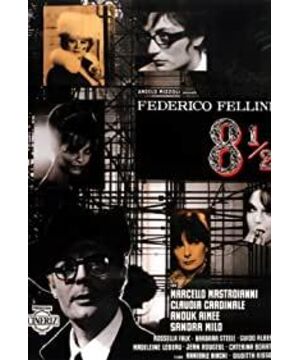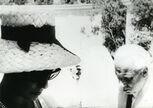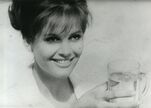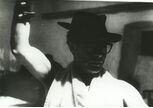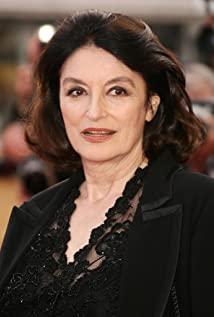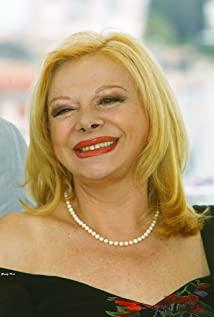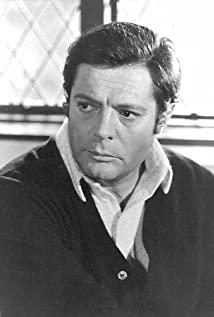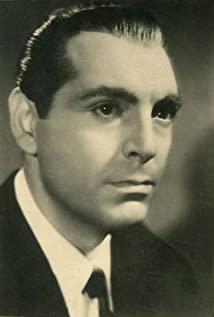Fei's stream of consciousness feels far more exciting than Bergman's wild strawberries. For the pursuit and re-presentation of fantasy and dreams, I feel that Fellini's approach is much more sophisticated.
A director caught up in reality, recuperating in an inexplicable holy place, being recuperated by a producer with deep pockets, citing scriptures and citing scriptures and talking about all kinds of illusory metaphysical plays, critics, noisy questioning media like continuous bullets from submachine guns, vying for drama Actors and agents who don't know anything outside of the show, marriages that are about to be broken up in name and reality, all kinds of fantasy friends and lovers, all kinds of people are nagging like flies, the director is ashamed to admit that he is exhausted of inspiration and suffers from expressing his true self , his spirit is about to be unable to bear the heavy pressure, and his consciousness is interspersed in reality, fantasy, memory, and dream. And the transition is very natural and smooth when interspersed, which can be described as an artistic pioneer in the transition of mirrors.
The director in the play probably reflects Fellini himself. The dilemma faced by the director, Fellini may have also experienced at that time, cheating in marriage? Fellini probably too. Running out of inspiration? More like, so he made such a stream of consciousness movie, interspersed his trivial consciousness into an artistic picture to show it, and this movie also became a corner of his convalescence. The protagonist director, wearing the black felt hat, was teased by Claudia as an old man, and the hint was probably Fellini himself.
Fellini's black-and-white shots are so charming. When you shoot casually, the language of the shots is very humorous. He is really a person who plays with the camera. The characters are either like crazy psychopaths, or like brainless romantic fools. Only the protagonist himself, walking in the world but outside the world, is out of tune. The charm of his shots is also reflected in the fact that in the same camera position, the same scene, and the same scene, the thematic direction expressed can be varied. Just playing the circus performance, especially the harem show, from the gathering of dogs, to the sadness of spring and autumn, to armed struggle, to circus SM, and finally to self-reflection, it is to vent one's own sexual fantasies, and it is gradually to find out. The pain of his wife is also the crux of finding himself, so he said before the meal: "Happiness is when we talk about the truth, no one is hurt." At the same time, the protagonist's wife also severely reprimanded the protagonist: "You put everyone in the play, but the characters in the play are only represented in the way you like, and I know that the truth is not what you presented in the play at all, But I won't be so shameless to expose you." I feel that this is a very rebuke to the director's profession, and because of this section, I feel that consciousness is not only interspersed with reality, fantasy, memory, and dreams. One background, and the fifth background "off-screen".
It feels like a lot of people are giving the film a low rating, and I tend to attribute it to translation issues. Like the film source on Youku, the translated Chinese does not even have logic. Maybe the translator himself does not know whether the translated Chinese or classical Chinese. Conditional, it is better to look at English words
View more about 8½ reviews


